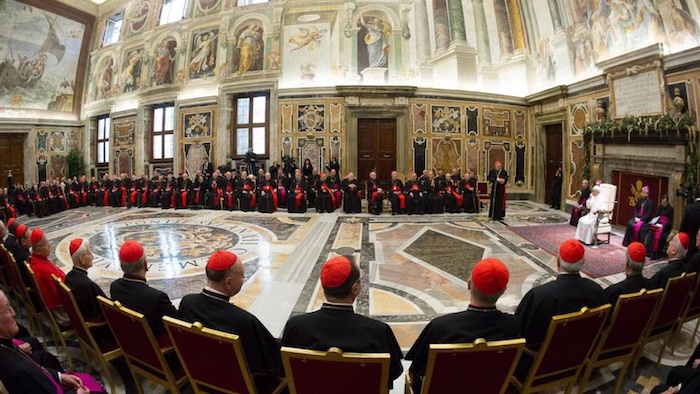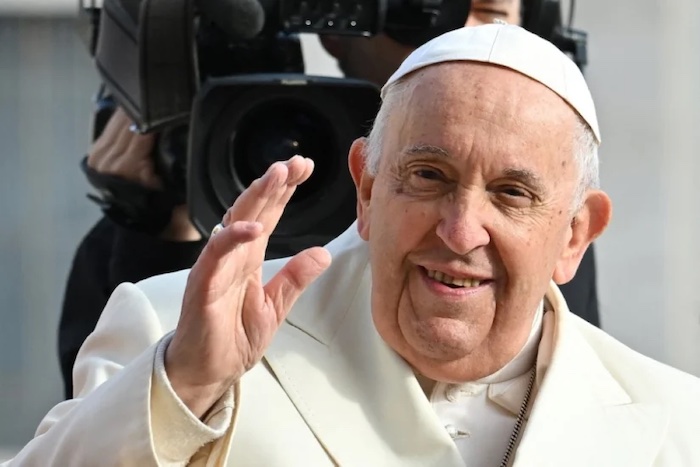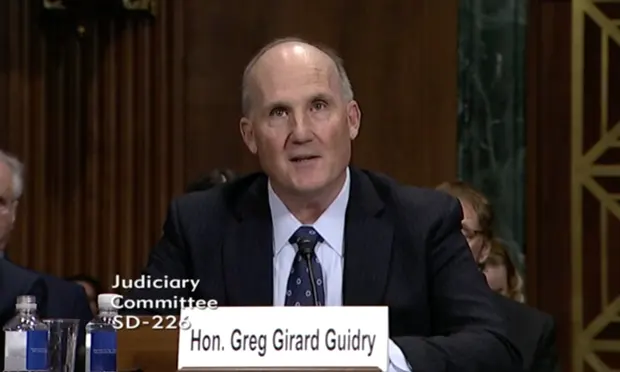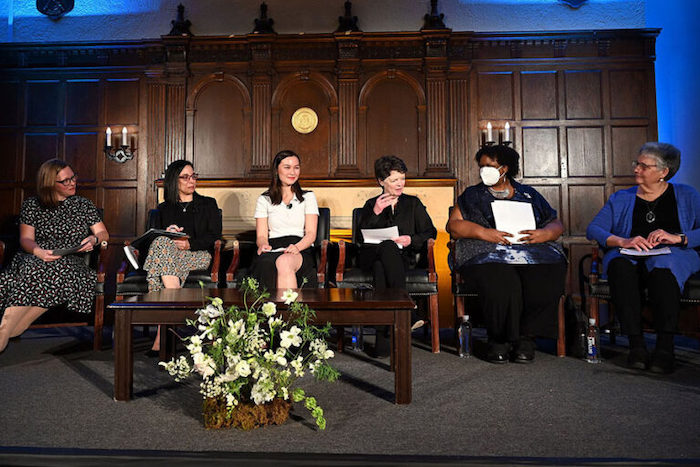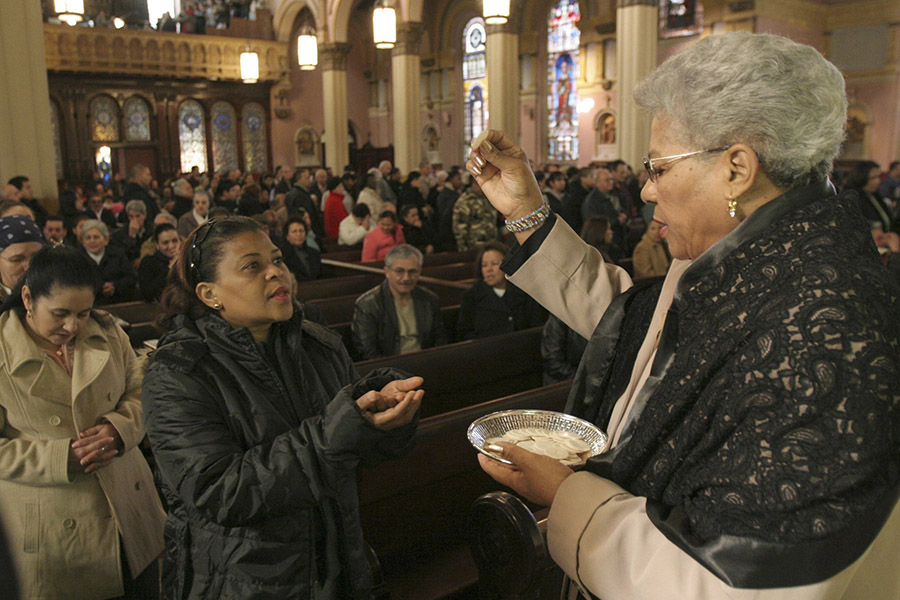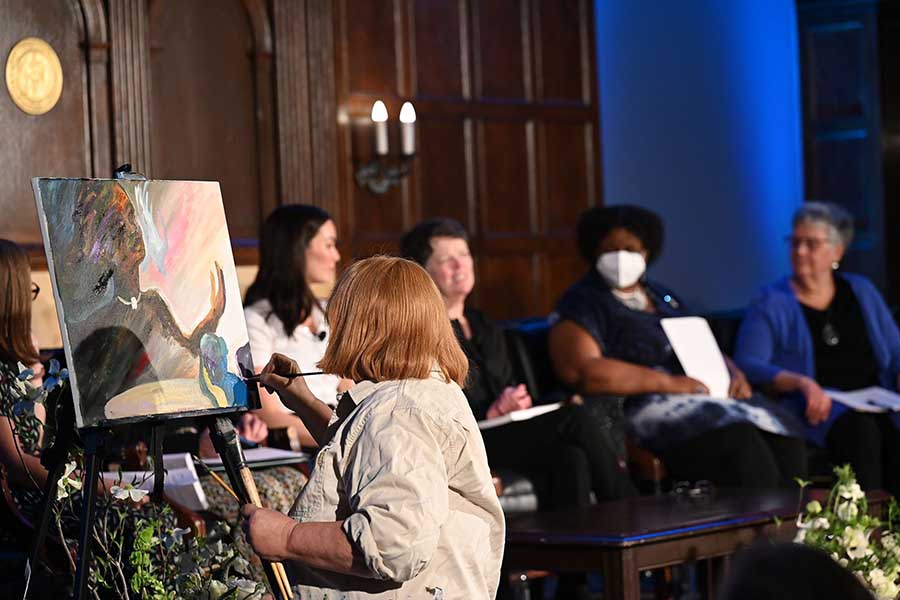
The Archdiocese of Philadelphia is facing a civil lawsuit over claims it covered up for one of its former priests who allegedly sexually abused a student at a Nashville, Tennessee, Catholic college run by Dominican women religious.
The complaint highlights problems in the sharing of information among dioceses and institutions, as well as unaddressed challenges in the Catholic Church’s handling of allegations of sexual abuse involving adult victims.
Attorneys for “Jane Doe,” an undergraduate at Aquinas College in Nashville from 2014-2018, filed a 31-page complaint April 18 with the Philadelphia County Court of Common Pleas Civil Trial Division, naming as defendants the archdiocese and Kevin Barry McGoldrick, a former priest of the Philadelphia archdiocese and currently a Nashville resident.
Doe, now a 28-year-old educator working in Virginia, claims McGoldrick groomed and then sexually assaulted her on at least two occasions in 2017 while she was a 22-year-old student at Aquinas College, during which time the priest — also a singer-songwriter who crowdfunded his own album — was her spiritual director.
Existing church protocols on abuse, such as the Dallas Charter, focus on the protection of minor children and those adults legally regarded as children due to a habitual incapacity of some kind.
But the vulnerability of adults generally to sexual exploitation by clergy or lay authority figures is only now receiving greater attention within the church. The 2018 McCarrick scandals and #ChurchToo movement exposed in the U.S. and globally how women and men in the church, particularly those in pastoral relationships, spiritual direction, employment, religious life or seminary, could be vulnerable to clergy abuse.
Underscoring the need to extend the church’s safe environment protection to adults, Pope Francis revised in March his 2019 legal reform “Vos Estis Lux Mundi” (“You are the light of the world”), with the term “vulnerable adults” specifically defined as “any person in a state of infirmity, physical or mental deficiency, or deprivation of personal liberty that in fact, even occasionally, limits his or her ability to understand or will or otherwise resist the offense.”
Ordained in May 2003, McGoldrick — according to the complaint — had been sent in 2013 with a letter of suitability from the Archdiocese of Philadelphia to serve as a chaplain at Aquinas College, located within the Diocese of Nashville and operated by the Dominican Sisters of St. Cecilia, known as the Nashville Dominicans.
According to the complaint, from about 2017 to 2020 McGoldrick also served as a chaplain at the Nashville Dominicans’ Overbrook Catholic School and St. Cecilia Academy, adjacent to the Aquinas campus, and together serving students from PreK to grade 12.
Doe, who is seeking more than $250,000 in total damages on five counts, alleges the archdiocese permitted McGoldrick’s relocation despite supposed prior reports of sexual abuse involving at least two other women in the Philadelphia area, which Doe said she discovered through online sources not specified in the complaint.
Requests placed by OSV News for comment from the Archdiocese of Philadelphia, Aquinas College and the Nashville Dominicans have been declined. OSV News has not yet received a response to requests for comment from the Overbrook Catholic School and St. Cecilia Academy.
Doe told OSV News in an April 19 call that she has suffered “two-fold” trauma as a result of the alleged abuse — the first from the sexual assaults, and the second from the “constant invalidation experienced from the church” as she has sought justice.
Learning of other alleged victims in the Philadelphia area was “another blow,” said Doe. “To know that everything I had experienced, the abuse at the hands of McGoldrick and the trauma the church had inflicted — all of that was avoidable if the Archdiocese of Philadelphia hadn’t sent a known sex predator to my college campus.”
Doe’s attorney, Stewart Ryan, advised OSV News by email that his client had been alerted to the alleged additional accusations against McGoldrick through the Facebook page of Catholics4Change, which describes itself as an “accountability blog” focusing on child protection issues in the Catholic Church.
The complaint details allegations of sexual abuse by McGoldrick against “M.W.” and “Victim #2” — neither of whom are parties to the lawsuit — said to have occurred prior to McGoldrick’s move to Nashville. Ryan told OSV News the information about M.W. and Victim #2 “was developed during (his) law firm’s investigation of the case.”
M.W. alleged in the complaint that McGoldrick had groomed her beginning in 2006, and abused her for several years, raping her at least once. Victim #2, a parish business manager, was also groomed and abused by McGoldrick beginning in 2012, according to the document, which asserts that both cases had been reported to and were under investigation by the Archdiocese of Philadelphia.
“McGoldrick made the women he abused, including Plaintiff, M.W., and Victim #2, believe that their sexual interactions were ‘special trials’ ordained by God,” the complaint states.
The complaint states Doe reported the alleged abuse she had experienced to both the Diocese of Nashville and the Archdiocese of Philadelphia in March 2019, and was repeatedly advised by the latter that no additional victims had been identified.
A timeline of Doe’s efforts to report her claims and obtain further information from the Archdiocese of Philadelphia, the Diocese of Nashville and Aquinas College was published July 18, 2020, by the U.K.-based Catholic Herald.
According to the article, the Archdiocese of Philadelphia stated that McGoldrick’s petition for laicization was “in process” as of July 2020.
OSV News is awaiting confirmation from the archdiocese of the date when McGoldrick, who is not listed as a priest on the Archdiocese of Philadelphia’s website, was officially laicized.
Along with the timeline of Doe’s reporting, the Catholic Herald posted a July 18, 2020, first-person reflection by Doe, writing under the pseudonym “Susanna.”
In that account, she described feeling “overwhelming confusion and guilt” over the alleged attacks by McGoldrick, and “regularly contemplated taking (her) own life.”
Speaking to OSV News, Doe said her spiritual life has been profoundly damaged by the abuse she claims to have suffered.
“I was a convert to Catholicism, and … Catholicism was everything to me. It was my whole life,” she said. “Even after leaving (Aquinas), I was a full-time missionary Catholic.”
However, the “experience of trying to seek justice while inside the church has been so damaging that I can no longer exist within the church,” she said. “Because to be surrounded by those who are actively putting others in harm’s way is not something I can live with. And my heart breaks for those who continue to trust in an organization that I know all too well is not keeping them safe.”
Ryan told OSV News that his client’s case against the Archdiocese of Philadelphia revolves around “two core issues.”
“First, the Archdiocese of Philadelphia never should have transferred this man,” he said. “Based on our information, we allege that they knew (about McGoldrick’s alleged abuse) as of at least 2013.”
In addition, “once our client came forward to the Archdiocese of Philadelphia … (it) should have been more fully open and transparent with what they did know,” said Ryan. “There was absolutely no reason for the archdiocese to withhold information it knows about credible accusations of clergy members, just because they haven’t abused a child.”
He said, “I think this case stands as an example of a severe lack of communication (among dioceses).”
In an April 19 statement emailed to OSV News, the Diocese of Nashville said it had received a March 2019 “report from an adult woman of inappropriate activity involving Kevin McGoldrick” regarding “an incident that happened a year and a half earlier.”
The diocese said the incident at the time “appeared to be neither a civil nor canonical crime,” noting that “the report made to us was significantly different from the description of sexual assault subsequently reported to others and contained in published media reports.”
The statement said the diocese had “immediately referred” the report to the Nashville Dominicans, who as McGoldrick’s then-employer “had the authority and purview to investigate and respond to this matter,” since “as a pontifical order … not under the control of the Bishop or Diocese of Nashville” the sisters are “solely responsible for the operation of the school and its employees.”
The Nashville diocese said McGoldrick had been granted priestly faculties in Nashville after his hiring by the Dominicans, following McGoldrick passing a criminal background check and presenting a letter of good standing from the Archdiocese of Philadelphia. The faculties “were withdrawn after the Dominican Sisters elected not to continue McGoldrick’s employment,” said the Nashville Diocese’s statement.
The diocese said it, along with the Archdiocese of Philadelphia, had received “a much more detailed and serious report of abuse” from “the person who made the initial report” in the summer of 2019.
The diocese also said that it had “entered into settlement discussions” with the person reporting, out of pastoral concern for her healing, with both parties acknowledging the agreement was “not to be construed as an admission of validity of the merits of any claim or allegation” made by the person reporting, and “any and all liability was specifically denied.”
Ryan confirmed by email to OSV News that his client’s settlement with the Nashville diocese — an amount reported by the Catholic Herald as totaling $65,000 — “has been fully resolved.”
OSV News has attempted to reach McGoldrick directly for comment. According to his LinkedIn page, McGoldrick — who lists his clerical experience but does not state he is currently a member of the clergy — states on the site he has been a chaplain at Avalon Hospice (now Gentiva Hospice) in Nashville. On calling the hospice April 20, OSV News was advised McCormick is no longer employed at the facility. A message sent to McGoldrick’s Facebook account has not yet received a response.
Complete Article ↪HERE↩!

